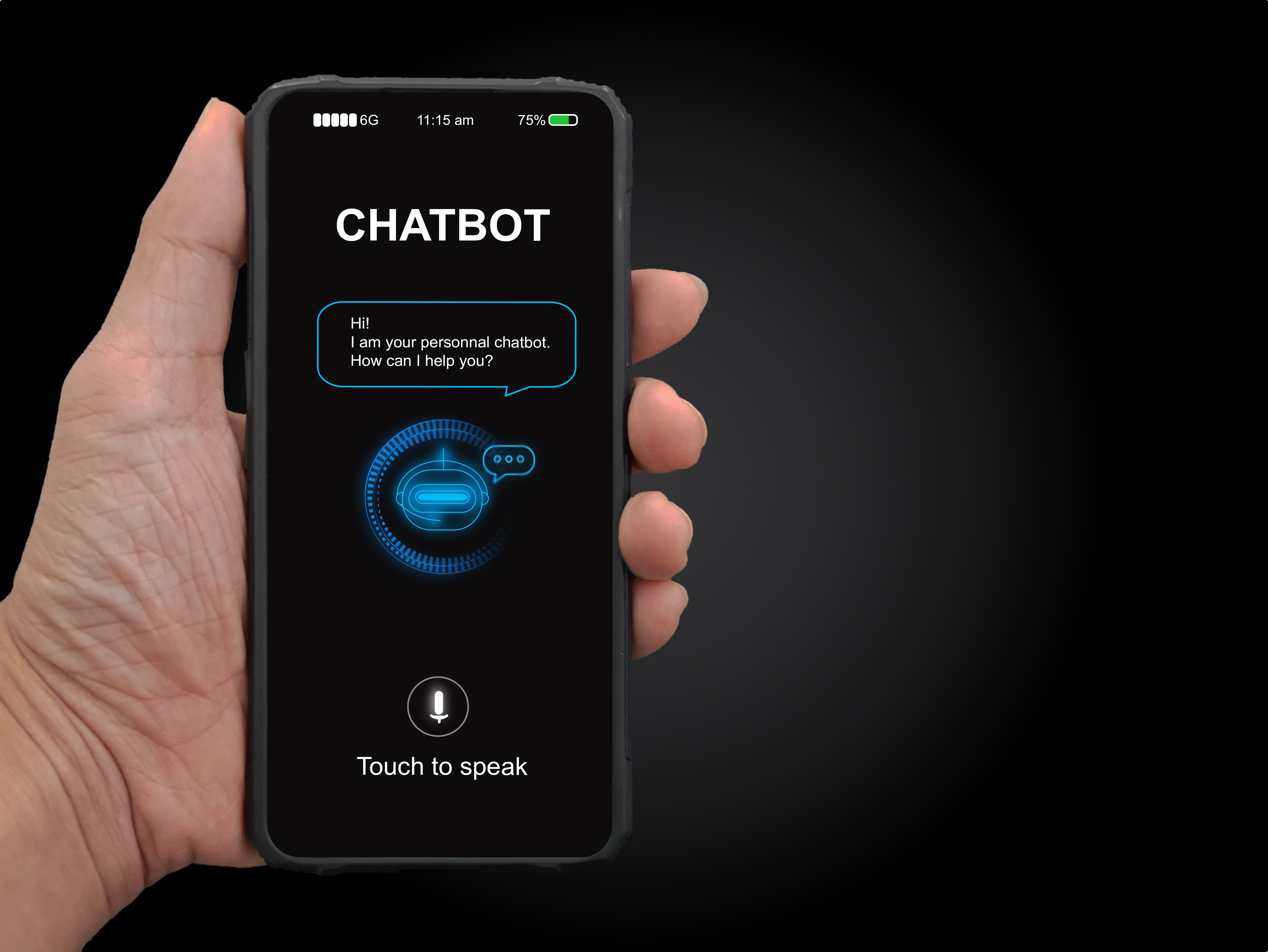 27 March 2025
27 March 2025
The use of AI in customer interactions has evolved dynamically over time. Not too long ago, chatbots were pretty basic in the sense that they followed a set of predefined rules, and if a customer asked something outside that scope, they hit a dead end. Then came Conversational AI, which changed everything right from its inception.
As Natural Language Processing (NLP) and Machine Learning (ML) technologies started to develop, Artificial Intelligence gradually began to understand intent, context, and even the emotions behind a query. The introduction of context-aware LLM responses made AI smarter, allowing it to handle complex conversations in real time. The most up to date versions can listen, speak, and see, responding through voice, video, and multimodal interactions. So in this article, let us explore how they have impacted businesses over time.
Role of AI Chatbots in Business Growth
AI Chatbots play a very important role in the growth of businesses in several ways such as:
Automating Customer Service Operations
The role of AI Chatbots in business goes beyond answering queries in the sense that they help with order tracking, account management, troubleshooting, and even handling refunds. This level of automation speeds up processes while improving accuracy.
Boosting Sales Through AI-Driven Recommendations
AI chatbots guide the customers through the sales funnel. According to data that includes browsing history and previous purchases, AI recommends relevant products, offers discounts, and provides special promotions, and all of this is done in real-time.
Increasing Customer Retention with Proactive AI Engagement
AI doesn’t wait for problems to arise but it predicts them. AI can identify signs of customer dissatisfaction and proactively offer solutions before the customer even complains. This helps businesses retain customers and build stronger relationships.
While AI Chatbots created great business impact what was to come was even bigger and better.
Benefits of Conversational AI in Customer Engagement
There are many benefits of Conversational AI when it comes to customer engagement. Here are some of the notable ones:
24/7 Availability and Instant Responses
One of the biggest benefits of Conversational AI is that it never sleeps. AI chatbots provide instant support around the clock so that customers no longer have to wait for business hours to get their answers. This leads to faster problem solving and customer satisfaction.
Cost Efficiency and Resource Allocation
The very use of AI-powered automation makes companies save a lot of money because instead of hiring large customer service teams businesses can use AI to handle routine queries thus freeing up the agents for more complex interactions that need human intervention. This reduces costs while simultaneously maintaining high-quality support.
Personalized Customer Experiences
AI doesn’t just answer questions but also learns from interactions. By analyzing preferences, past behavior, and browsing patterns of customers AI provides personalized recommendations and solutions that suit the best. This makes AI Customer Interaction more engaging and effective.
Multilingual Support for Global Reach
Businesses operating in different countries need multilingual support and AI easily adapts to multiple languages and regional dialects thereby making sure that customers all across the world receive a seamless and consistent experience.
The latest iterations of AI in customer service powered by Agentic AI frameworks are superseding its predecessors.
Customizing Interactions with AI: The Future of Personalization
The process of customizing interactions with AI means giving every customer a unique experience. AI analyzes real-time data to tailor product suggestions, messaging, and support responses. As a result, a customer enjoys a much more personalized and immersive experience.
Multimodal AI Interactions
AI is no longer just text-based because nowadays it includes voice, video, and even virtual assistants. Many businesses around the world are incorporating AI into voice-based help desks, product recommendation videos and immersive shopping experiences powered by Augmented Reality (AR) and Virtual Reality (VR).
So AI can now guide a customer through a 3D product showroom, answer their questions, and even make recommendations based on their preferences. This is what makes modern AI Customer Interaction far more engaging than ever before.
Emotionally Intelligent AI for Customer Satisfaction
If a customer sounds upset, AI adjusts its response accordingly thereby providing a more empathetic and understanding interaction. This makes AI support feel more human and less robotic.
How does the Future look for AI-Powered Humanized Interactions?
AI Avatars and Digital Humans
Businesses are now developing AI-powered avatars that replicate human expressions, speech patterns, and emotions. These next-gen AI Chatbots provide a level of interaction that feels almost like speaking to a real person.
Virtual Assistants for End-to-End Customer Journeys
AI is becoming an all-in-one customer service tool. From helping customers research products to answering post-purchase questions, AI is guiding users through every stage of their journey.
Predictive AI and Proactive Engagement
By analyzing browsing behavior, past purchases, and engagement history, AI can provide proactive support, product recommendations, and timely promotions.
Why should businesses adopt AI in present times?
AI is no longer a futuristic concept—it’s happening now. Companies that invest in AI-powered solutions gain a competitive edge by improving efficiency, cutting costs, and delivering superior customer experiences.
AI is not just about automation. It’s about making AI Customer Interaction feel natural and intuitive. The future of AI lies in humanized, context-aware, and highly personalized conversations that help businesses build long-lasting customer relationships.
Kiksy.live’s Human Digital Twin
Kiksy.live is taking AI a step further by creating ultra-realistic digital human twins. Unlike traditional AI Chatbots, which respond only in plain text, Kiksy.live offers real-time conversations with a human-like presence and also boasts some features that make it stand out.
- Real-time, voice-synced, and emotion-aware interactions.
- Available across multiple platforms, including websites and apps.
- AI-driven personalized responses based on context and past conversations.
- Autonomous decision-making and performing ability.
FAQs
What is the objective of Conversational AI?
Conversational AI systems are trained by massive volumes of data comprising text and speech. With such data, the system learns to comprehend as well as process human language and further applies this understanding to converse with humans naturally.
What is the future of Conversational AI?
Conversational AI is surely going to make improvements in customer experiences and efficiency of businesses in future by climbing the ladder of technological advancements and resulting into more natural, personalized, and sentiment-driven interactions.
What is the role of AI?
AI's role is basically to simulate human intelligence so as to allow machines to learn, reason, and perform tasks that usually need human intelligence in order to perform, thereby ultimately automating processes, improving decision-making, and driving innovation across various industries.
What are the benefits of AI chatbot?
AI-powered chatbots provide responses to questions faster and with the best possible accuracy, thus shortening waiting times, making searches easier and enabling customer interactions in a meaningful manner.
What is customization in AI?
The process of customization in AI refers to the fine-tuning models and training on industry-specific datasets. These systems are customized in terms of a company’s specific needs by integrating seamlessly into enterprise workflows.
Kavita Jha
Chief Executive Officer
Kavita has been adept at execution across start-ups since 2004. At KiKsAR Technologies, focusing on creating real life like shopping experiences for apparel and wearable accessories using AI, AR and 3D modeling.
